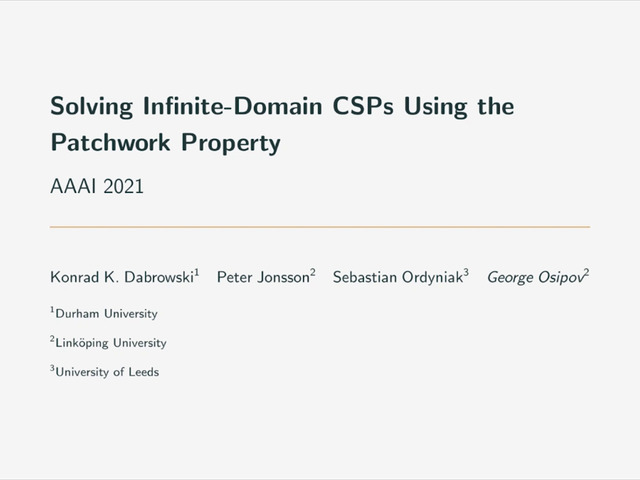Abstract:
We consider the product of determinantal point processes (DPPs), a point process whose probability mass is proportional to the product of principal minors of multiple matrices as a natural, promising generalization of DPPs.
We study the computational complexity of computing its normalizing constant, which is among the most essential probabilistic inference tasks.
Our complexity-theoretic results (almost) rule out the existence of efficient algorithms for this task, unless input matrices are forced to have favorable structures.
In particular, we prove the following:
(1) Computing $\sum_{S} \det(\mat{A}_{S,S})^p$ exactly for every (fixed) positive even integer $p$ is UP-hard and Mod3P-hard, which gives a negative answer to an open question posed by Kulesza and Taskar (2012).
(2) $\sum_{S} \det(\mat{A}_{S,S}) \det(\mat{B}_{S,S}) \det(\mat{C}_{S,S})$ is NP-hard to approximate within a factor of $ 2^{O(|I|^{1-\epsilon})} $ for any $\epsilon > 0$, where $|I|$ is the input size. This result is stronger than #P-hardness for the case of two matrices by Gillenwater (2014).
(3) There exists a $ k^{O(k)} |I|^{O(1)} $-time algorithm for computing $\sum_{S} \det(\mat{A}_{S,S}) \det(\mat{B}_{S,S})$, where $k$ is ``the maximum rank of $\mat{A}$ and $\mat{B}$'' or ``the treewidth of the graph formed by non-zero entries of $\mat{A}$ and $\mat{B}$.'' Such parameterized algorithms are said to be fixed-parameter tractable.









































